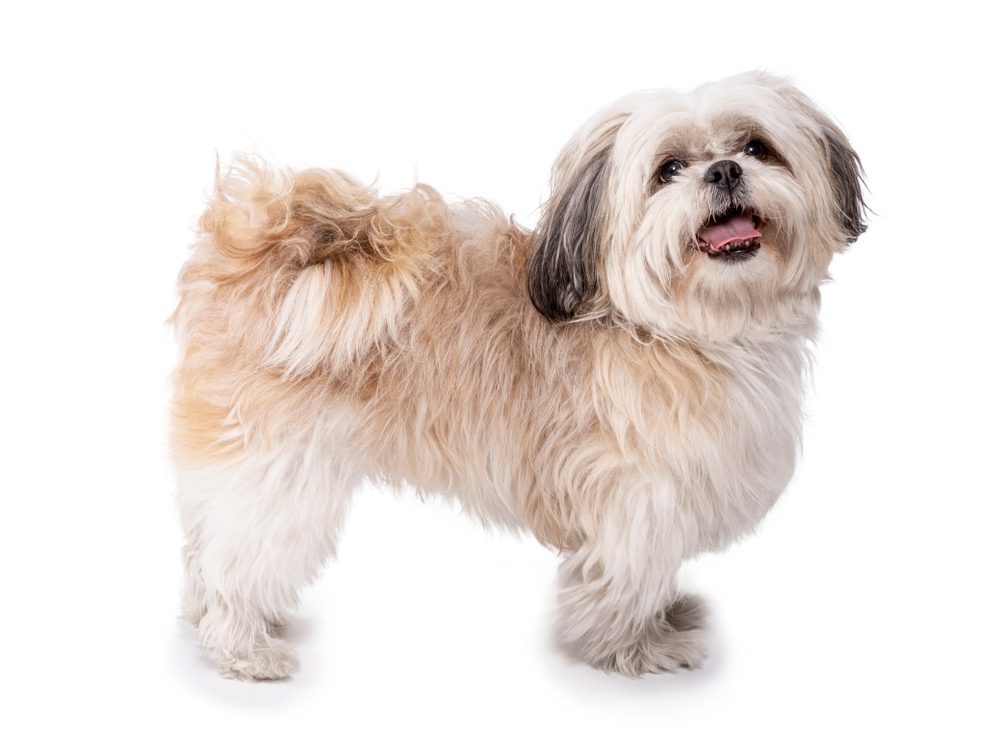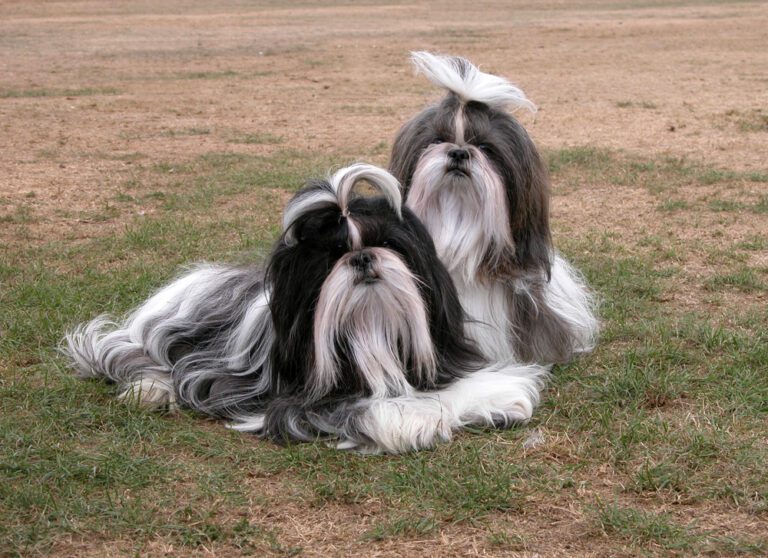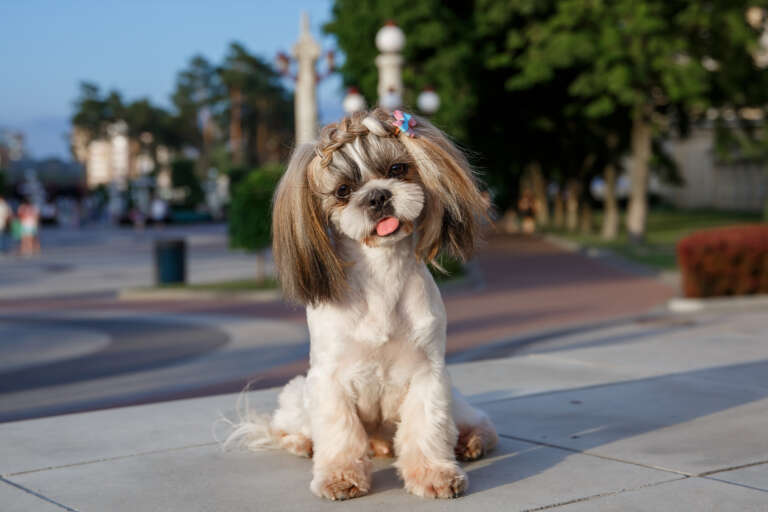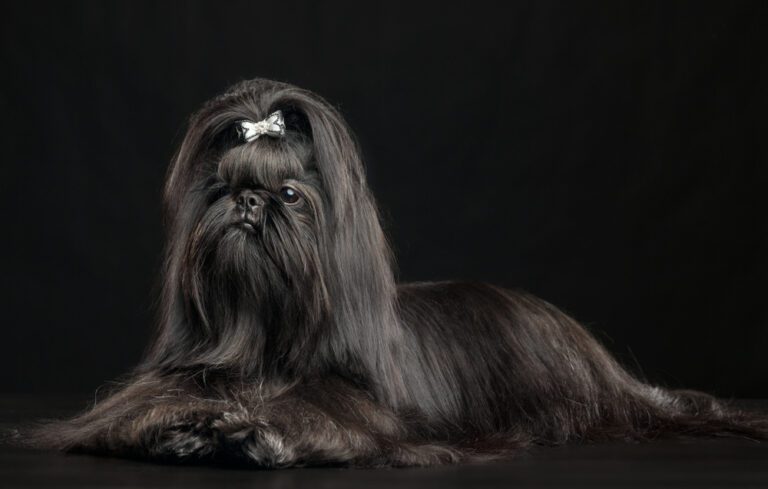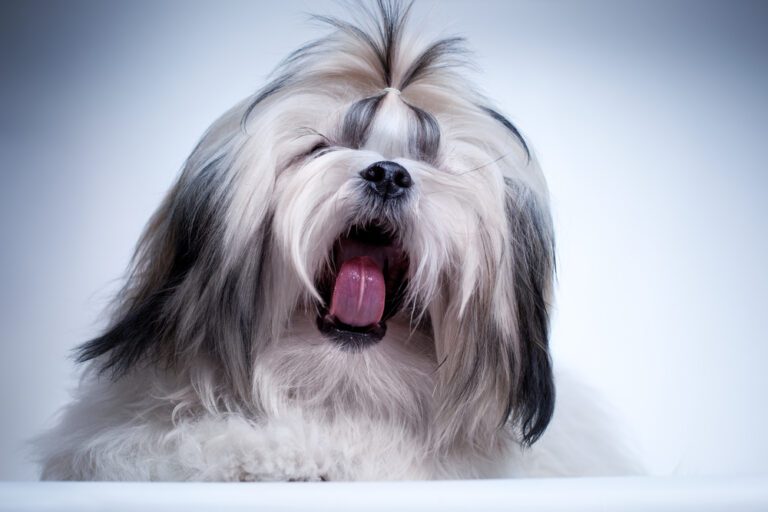Why Shih Tzu’s Considered the Worst Dogs: The Real Truth About Shih Tzu
Why Shih Tzu’s Considered the Worst Dogs: Shih Tzu dogs, with their endearing appearance and charming demeanor, are often regarded as delightful companions. However, a shadow of controversy looms over these small, fluffy canines, as some individuals consider them to be among the less desirable breeds. In this exploration, we delve into the reasons behind the perception of Shih Tzus as the “worst” dog and seek to uncover the truth beneath the surface.
As we embark on this journey, we must approach the topic with an open mind, recognizing that every dog, regardless of breed, has a unique personality and characteristics. Let’s unravel the complexities surrounding Shih Tzus and understand why they may not be everyone’s first choice regarding canine companionship.
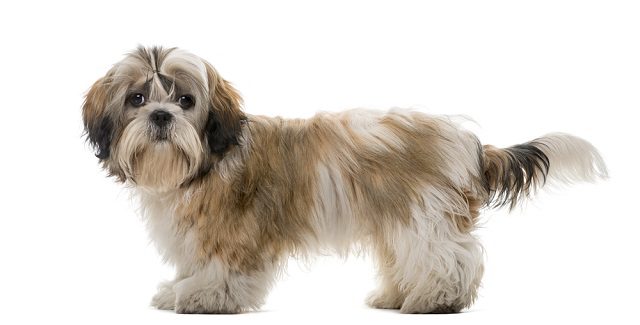
Myths vs. Reality: Debunking the Misconceptions Surrounding Shih Tzu
Shih Tzus, like many breeds, have fallen victim to various misconceptions that contribute to their less-than-stellar reputation. It’s crucial to separate fact from fiction to appreciate these small, lovable dogs for who they indeed are.
Myth 1: Shih Tzus are High-Maintenance
Reality: While Shih Tzus boasts a luxurious coat that requires regular grooming, they are not as high-maintenance as some might believe. With proper care and grooming routines, Shih Tzus can maintain a tidy and healthy appearance without burdening their owners. Responsible grooming not only enhances their aesthetic appeal but also contributes to their overall well-being.
Myth 2: Shih Tzus are Untrainable
Reality: Contrary to the notion that Shih Tzus are untrainable, these dogs are intelligent and can excel in obedience training. Like any breed, positive reinforcement and consistency are key. Shih Tzus responds well to training methods that include treats, praise, and a patient approach. With the proper guidance, they can learn commands and tricks, proving they are far from disobedient.
Myth 3: Shih Tzus are Not Good with Children
Reality: Shih Tzus are known for their friendly and affectionate nature, making them good companions for families with children. Proper socialization from an early age ensures that Shih Tzus can form strong bonds with kids and become an integral part of the family dynamic. As with any dog, supervision and teaching children how to interact with pets are essential for a harmonious relationship.
Myth 4: Shih Tzus are Aggressive
Reality: While every dog’s temperament is unique, Shih Tzus is not inherently aggressive. Like any breed, their behavior is influenced by genetics, environment, and training. Early socialization and positive reinforcement can help shape Shih Tzu’s friendly and adaptable demeanor, disproving the misconception that they are naturally aggressive.
In dispelling these myths, it becomes evident that Shih Tzus, like any other breed, deserves fair consideration. By understanding and appreciating the reality behind these misconceptions, potential dog owners can make informed decisions about whether a Shih Tzu is the right fit for their lifestyle and preferences.
Understanding the Shih Tzu temperament
A dog’s temperament is pivotal in determining its suitability as a pet. When it comes to Shih Tzus, understanding their unique temperament is essential for fostering a positive and harmonious relationship. Let’s delve into the critical aspects of the Shih Tzu temperament.
Affectionate Companionship
Shih Tzus are renowned for their affectionate nature. These small dogs thrive on human companionship and are often called “velcro dogs” because they tend to stick close to their owners. This trait makes them excellent lap dogs and loyal companions, providing comfort and joy to those who welcome them into their homes.
Playful and Energetic
Despite being small, Shih Tzus displays a surprising amount of energy and playfulness. They enjoy interactive playtime and benefit from regular exercise to maintain a healthy weight and mental well-being. Incorporating activities like short walks and engaging toys into their routine helps fulfill their need for physical and mental stimulation.
Alert and Watchful
Shih Tzus possess a keen sense of awareness, making them effective watchdogs. While they may not be guard dogs traditionally, their alertness and tendency to bark when something seems amiss make them excellent at alerting their owners to potential intruders or disturbances.
Adaptable to Living Conditions
Whether in a spacious house or a cozy apartment, Shih Tzus is adaptable to various living conditions. Their moderate exercise requirements and small size make them suitable for urban and suburban lifestyles alike. However, it’s crucial to provide them with daily walks and mental stimulation to keep them happy and healthy.
Social and Good with Other Pets
Shih Tzus typically exhibit a friendly and social demeanor, making them compatible with other pets. Early socialization plays a vital role in shaping their behavior, and with proper introductions, Shih Tzus can form positive relationships with other dogs and animals.
Patience and Tolerance
Shih Tzus are known for their patient and tolerant nature, especially towards children. While supervision is essential in any interaction between dogs and young children, Shih Tzu’s gentle disposition makes them a popular choice for families.
Understanding the Shih Tzu temperament is vital in providing the care and environment these charming dogs need to thrive. By appreciating their affectionate, playful, and adaptable nature, potential owners can make informed decisions about welcoming a Shih Tzu into their homes, leading to a fulfilling and lasting companionship.
The challenges of owning a Shih Tzu
While Shih Tzus are beloved for their charming personalities and endearing qualities, like any breed, they come with unique challenges. Prospective owners should know these aspects to make informed decisions about welcoming a Shih Tzu into their homes.
Grooming Requirements
One of the primary challenges associated with Shih Tzus is their grooming needs. Their long, flowing coat requires regular brushing and grooming to prevent matting and tangling. This can be time-consuming and incur additional expenses if professional grooming services are sought. Prospective owners should be prepared to invest time and effort in maintaining their Shih Tzu’s coat to keep it healthy and aesthetically pleasing.
Potential Health Concerns
Shih Tzus, like many purebred dogs, are susceptible to specific health issues. These may include respiratory problems due to their brachycephalic (short-muzzled) faces, dental issues, and eye conditions. Regular veterinary check-ups and a proactive approach to health care are essential to address potential concerns early on and ensure the well-being of the Shih Tzu.
Training Challenges
While Shih Tzus are intelligent dogs, they can exhibit a stubborn streak, making training challenging. Consistent and positive reinforcement-based training is crucial, but owners should be patient and persistent. Early socialization is vital to ensure that Shih Tzus develops into a well-behaved and adaptable companion.
Separation Anxiety
Shih Tzus are known for their affectionate nature and attachment to their owners. This can lead to separation anxiety when left alone for extended periods. Owners should gradually acclimate their Shih Tzus to alone time, provide engaging toys, and establish a routine to minimize stress when not around.
Potential Allergies
Shih Tzus may be prone to allergies, including skin and food allergies. Understanding the signs of allergic reactions and working closely with a veterinarian to identify and address potential triggers is crucial for maintaining the health and comfort of the Shih Tzu.
Monitoring Weight
Due to their small size, Shih Tzus are prone to weight gain, which can exacerbate specific health issues. Owners must carefully monitor their Shih Tzu’s diet, provide appropriate portions, and ensure they receive regular exercise to maintain a healthy weight.
While Shih Tzus make excellent companions, being aware of the challenges associated with their care is essential for responsible ownership. With proper understanding, dedication, and proactive care, many of these challenges can be effectively managed, allowing Shih Tzus and their owners to enjoy a happy and fulfilling relationship.
Common misconceptions about Shih Tzus
Shih Tzus, with their distinctive appearance and charming personalities, are subject to several misconceptions that can influence people’s perceptions of this beloved breed. Let’s debunk some of the most common myths surrounding Shih Tzus.
Misconception 1: Shih Tzus are Lazy
Reality: While Shih Tzus may enjoy lounging around the house, they are far from lazy. These dogs have a playful and energetic side that comes to life during interactive play sessions. Ensuring they engage in regular physical activity is crucial to maintaining their physical and mental stimulation.
Misconception 2: Shih Tzus are Only Suitable for Seniors
Reality: Shih Tzus makes excellent companions for individuals of all ages. Their adaptable nature allows them to thrive in various living situations, making them suitable for families, singles, and seniors. Their affectionate temperament makes them well-suited for anyone seeking a loyal and loving pet.
Misconception 3: Shih Tzus are High-Strung and Nervous
Reality: Shih Tzus are recognized for their composed and amiable temperament. While individual personalities vary, proper socialization from an early age helps shape a well-adjusted and confident Shih Tzu. With the proper training and positive reinforcement, they can exhibit a stable and composed temperament.
Misconception 4: Shih Tzus are Aggressive Towards Strangers
Reality: Shih Tzus are generally friendly and sociable dogs. While they may bark to alert their owners to the presence of strangers, aggression is not a typical trait of this breed. Early socialization and positive experiences can help Shih Tzus develop into a well-mannered and approachable companion.
Misconception 5: Shih Tzus are Hard to Train
Reality: Shih Tzus are intelligent dogs that respond well to positive reinforcement-based training methods. While they may have an independent streak, patience and consistency can overcome any perceived difficulty in training. Like any dog, early training and socialization are crucial for developing good behavior.
Misconception 6: Shih Tzus Require Excessive Grooming
Reality: While Shih Tzus have a luxurious coat, they do not necessarily require excessive grooming. Regular brushing and maintenance can keep their coat in good condition. Some owners opt for a shorter cut for practicality, reducing grooming demands while allowing the Shih Tzu to look adorable.
In dispelling these misconceptions, it becomes evident that Shih Tzus are versatile, loving, and well-suited for various lifestyles. Understanding the true nature of these delightful dogs helps prospective owners make informed decisions and fosters a deeper appreciation for the beautiful qualities that Shih Tzus brings to their homes.
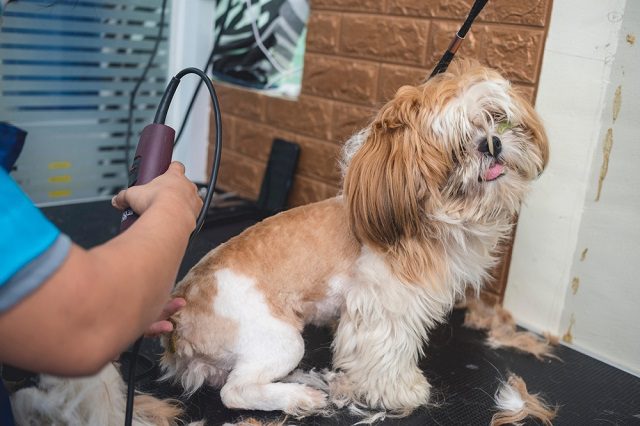
Training and socialization for a well-behaved Shih Tzu
Training and socialization are crucial components in shaping the behavior of any dog, and Shih Tzus is no exception. To ensure a well-behaved and socially adept companion, it’s essential to invest time and effort into their training and socialization from an early age.
Training Tips
Positive Reinforcement
Utilize positive reinforcement techniques, such as treats, praise, and play, to motivate and reward your Shih Tzu for good behavior. This approach fosters a positive association with training and strengthens the bond between you and your furry friend.
Consistency is Key
Establish consistent rules and routines. Shih Tzus, like many dogs, thrive on predictability. Consistency plays a key role in helping Shih Tzus understand expectations and reinforcing positive behavior consistently over time.
Early Start
Begin training early in your Shih Tzu’s life. Puppies are like sponges, absorbing information quickly. Starting training early allows you to shape their behavior positively and prevents the development of undesirable habits.
Socialization
Introduce your Shih Tzu to various people, places, and experiences during the critical socialization period (typically between 3 and 14 weeks). Positive exposure to different environments and stimuli helps them become well-adjusted and confident adults.
Patience and Positive Reinforcement
Be patient during the training process. Shih Tzus responds well to positive reinforcement and encouragement. If they make a mistake, redirect their behavior and reward them when they follow the desired command.
Socialization Guidelines
Expose to Different Environments
Take your Shih Tzu to various environments, including parks, busy streets, and other locations with different sights and sounds. This exposure builds their confidence and reduces the likelihood of fear-based behaviors.
Interaction with Other Dogs and Animals
Facilitate positive interactions with other dogs and animals. This helps your Shih Tzu learn appropriate social behaviors and contributes to their ability to get along with different pets.
Meeting People
Encourage your Shih Tzu to interact with a diverse range of people, including different ages and appearances. This contributes to their comfort around strangers and prevents excessive shyness or fearfulness.
Handling and Grooming
Get your Shih Tzu accustomed to being handled and groomed from a young age. This not only makes grooming sessions more manageable but also helps them stay calm during veterinary examinations and other necessary procedures.
Obedience Training Classes
Enroll your Shih Tzu in obedience training classes. These classes not only provide structured training but also offer opportunities for positive socialization with other dogs and people.
By incorporating these training and socialization practices into your Shih Tzu routine, you lay the foundation for a well-mannered and socially adept companion. Remember that every dog is an individual, so tailor your approach to suit your Shih Tzu’s unique personality and needs.
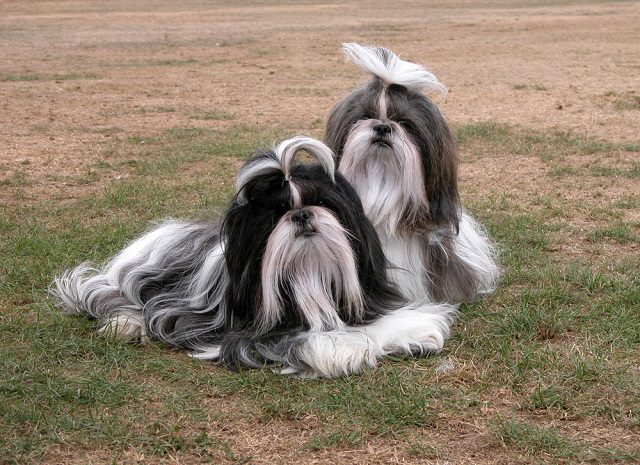
Finding the Right Fit: Is a Shih Tzu the Right Dog for You?
Choosing the right dog breed is a significant decision that involves considering various factors, including lifestyle, preferences, and the specific characteristics of the breed. When contemplating whether a Shih Tzu is the right fit for you, it’s essential to weigh both the delightful qualities and the potential challenges associated with this breed.
Positive Qualities of Shih Tzus
Affectionate Nature
Shih Tzus are known for their affectionate and loving disposition. If you’re seeking a devoted companion who enjoys being close to its owner, the Shih Tzu’s affectionate nature may be an ideal match.
Adaptability
Shih Tzus are adaptable to various living situations, making them suitable for apartments and houses. Their moderate exercise needs and small size make them versatile companions for individuals and families alike.
Playful and Energetic
Despite their small stature, Shih Tzus are surprisingly playful and energetic. If you’re looking for a dog that enjoys interactive play and can keep up with a moderate exercise routine, a Shih Tzu might be a great fit.
Good with Children
Shih Tzus are generally good with children, making them suitable for families. Proper socialization and supervision are vital to fostering positive interactions between Shih Tzus and young family members.
Alertness and Watchfulness
Shih Tzus have a keen sense of awareness, making them effective watchdogs. If you appreciate a dog that alerts you to potential intruders or disturbances, the Shih Tzu’s watchful nature could be an asset.
Considerations and Potential Challenges
Grooming Needs
Shih Tzus has a long, luxurious coat that requires regular grooming. If you are willing to invest time and effort in maintaining their coat or prefer a shorter cut for practicality, the grooming requirements should be considered.
Training and Socialization
Shih Tzu’s benefit from early training and socialization. If you are committed to providing consistent and positive reinforcement-based training, and if you have the time to expose your Shih Tzu to various people and environments, these challenges can be successfully managed.
Health Considerations
Shih Tzus may be prone to specific health issues, including respiratory problems due to their brachycephalic faces and dental concerns. Regular veterinary check-ups and proactive health care are essential for their well-being.
Attention and Companionship
Shih Tzus thrives on human companionship and may experience separation anxiety if left alone for extended periods. If you can provide the attention and companionship they crave, a Shih Tzu may be a wonderful addition to your life.
Whether a Shih Tzu is the right dog for you depends on your lifestyle, commitment to grooming and training, and preferences for a canine companion. By carefully considering both the positive qualities and potential challenges, you can make an informed decision and, if the fit is right, enjoy a fulfilling relationship with a Shih Tzu.
Health Concerns: What You Need to Know Before Getting a Shih Tzu
When considering bringing a Shih Tzu into your home, it’s crucial to be aware of potential health concerns associated with this breed. While Shih Tzus are generally robust and healthy, like all breeds, they may be prone to certain conditions that require attention and care.
Brachycephalic Respiratory Issues
Shih Tzus has a brachycephalic (short-muzzled) face, which can contribute to respiratory challenges. This anatomy may result in snorting, snuffling, or difficulty breathing, especially in hot or humid weather. It’s essential to monitor their breathing and provide a relaxed and well-ventilated environment.
Dental Health
Shih Tzus are susceptible to dental issues, including tartar buildup and periodontal disease. Regular dental care, such as tooth brushing and chews, can help maintain good oral health. Veterinary dental check-ups are also crucial to address any emerging problems.
Eye Conditions
Shih Tzus are known for their large, expressive eyes, which can be prone to conditions such as cherry eye, cataracts, and progressive retinal atrophy (PRA). Regular eye examinations by a veterinarian are essential to identify and address any eye-related issues promptly.
Allergies
Some Shih Tzus may be prone to allergies, including skin and sensitivities to certain foods. Observing itching, redness, or gastrointestinal issues can help identify and manage potential allergic reactions. Consultation with a veterinarian is crucial for accurate diagnosis and treatment.
Patellar Luxation
Patellar luxation, a condition where the kneecap temporarily moves out of its normal position, can be seen in Shih Tzus. Regular veterinary check-ups can help monitor joint health, and if patellar luxation is identified, appropriate measures can be taken to manage the condition.
Ear Infections
Shih Tzus, like many dogs with floppy ears, may be prone to ear infections. Regularly cleaning and inspecting the ears is essential in preventing infections. If signs of redness, swelling, or discharge are observed, prompt veterinary attention is necessary.
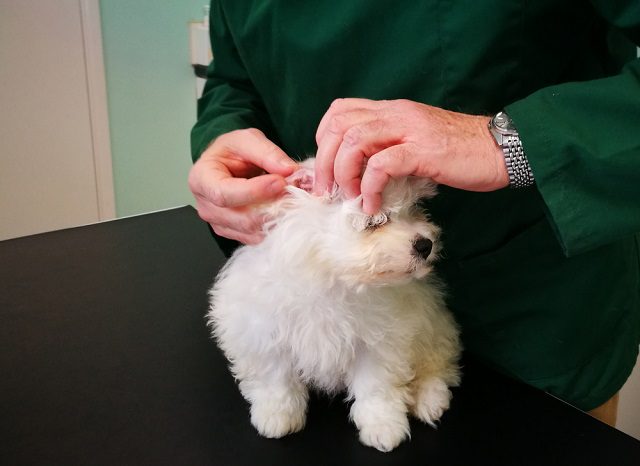
Weight Management
Due to their small size, Shih Tzus can be prone to weight gain, which may exacerbate specific health issues. Maintaining a healthy diet, portion control, and regular exercise are essential for weight management and overall well-being.
Regular Veterinary Check-ups
Routine veterinary check-ups are crucial for monitoring the overall health of your Shih Tzu. Early detection of potential issues allows for timely intervention and appropriate care.
While these health concerns are worth considering, it’s important to note that responsible breeding practices and attentive care can significantly mitigate the risks. Choosing a reputable breeder who prioritizes the health and well-being of their dogs and providing your Shih Tzu with regular veterinary care, a balanced diet, and a loving home environment can contribute to a long and healthy life for your furry companion.
The Importance of Responsible Ownership: Meeting the Needs of Shih Tzu
Bringing a Shih Tzu into your home is not just a delightful addition to your family but also a commitment to ensuring their well-being through responsible ownership. To create a harmonious and fulfilling life for your Shih Tzu, it’s essential to meet their specific needs and provide the care, attention, and environment they require.
Nutritious Diet
Providing a balanced and nutritious diet is fundamental to your Shih Tzu’s health. Consult with your veterinarian to determine the appropriate type and amount of food based on age, size, and activity level. Regular mealtimes and portion control contribute to weight management and overall well-being.

Regular Exercise
Despite their small size, Shih Tzus are playful and energetic dogs. Regular exercise is crucial to maintain their physical health and mental well-being. Daily walks, interactive play, and engaging toys can help fulfill their exercise needs.
Grooming and Coat Care
The Shih Tzu’s long, luxurious coat requires regular grooming to prevent matting and tangling. Establishing a grooming routine, including brushing, bathing, and occasional professional grooming, is essential for their comfort and overall hygiene.
Training and Socialization
Shih Tzu’s benefit from early training and socialization. Positive reinforcement-based training methods help shape their behavior, and exposure to various people, places, and experiences contributes to their confidence and adaptability.
Regular Veterinary Check-ups
Routine veterinary check-ups are crucial for monitoring your Shih Tzu’s overall health. Vaccinations, dental care, and preventive measures are essential to responsible pet ownership. Detecting potential health issues early enables prompt intervention.
Companionship and Attention
Shih Tzus thrives on human companionship and can experience separation anxiety when left alone for extended periods. Providing a loving and attentive environment, including playtime, cuddles, and interaction, is vital for their emotional well-being.
Safety and Environment
Create a safe and enriching environment for your Shih Tzu. Ensure that your home is free of hazards, and provide a comfortable space for rest and relaxation. Monitor interactions with other pets and children to avoid any potential accidents.
Identification and Microchipping
Responsible ownership includes ensuring that your Shih Tzu can be identified in case they get lost. A collar with an ID tag and microchipping are effective measures to increase the chances of a reunion if your pet goes missing.
Reputable Breeding Practices
Choosing a Shih Tzu from a reputable breeder who prioritizes the health and well-being of their dogs is a crucial aspect of responsible ownership. Responsible breeders conduct health screenings, provide proper socialization, and adhere to ethical breeding practices.
Spaying/Neutering
Responsible ownership often involves spaying or neutering your Shih Tzu unless you have specific plans for responsible breeding. This not only helps control the pet population but can also contribute to your dog’s health and behavior.
By embracing these principles of responsible ownership, you not only enhance the quality of life for your Shih Tzu but also contribute to the overall well-being and happiness of the canine companion who brings joy and companionship to your home.
Conclusion: Why Shih Tzu’s Considered the Worst Dogs
The Shih Tzu, with its charming personality and distinctive appearance, reveals itself as a delightful and adaptable companion. Dispelling common misconceptions, we uncover a breed that is not only affectionate and playful but also intelligent and responsive to positive training.
Understanding their grooming needs, health considerations, and the importance of responsible ownership is paramount to fostering a harmonious relationship with these endearing dogs. By acknowledging the true nature of Shih Tzus, characterized by loyalty, adaptability, and a loving demeanor, prospective owners can make informed decisions and embark on a rewarding journey of companionship with a breed that adds immeasurable joy and warmth to their lives.

